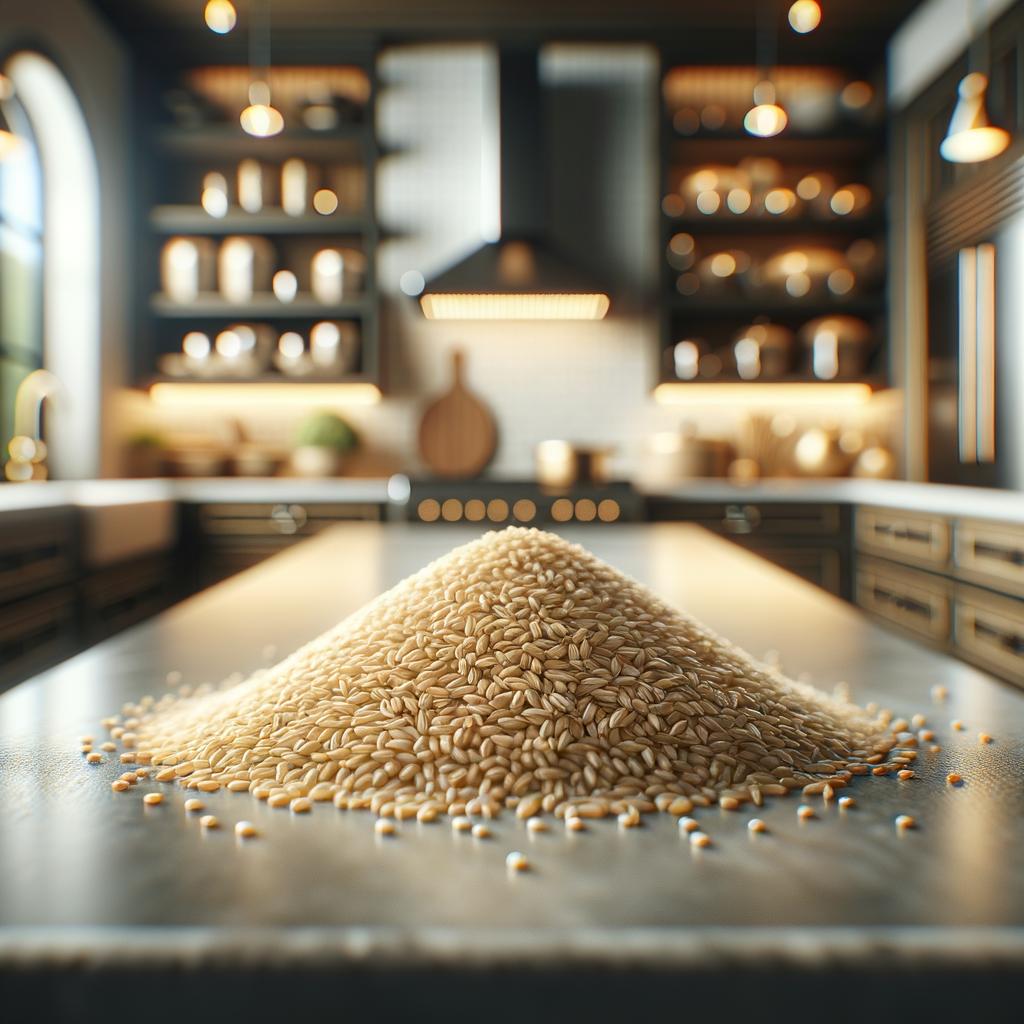Fine Bulgur

Description
Fine bulgur, also known as bulgur wheat, is an enchanting ingredient that hails from the Middle East. It's an unassuming grain, with a light golden hue and a texture that's delightfully soft yet somewhat granular. Its flavor profile is mild, nutty, and slightly earthy, offering a comforting taste that is both familiar and intriguing. What sets fine bulgur apart from similar grains is its unique processing method: partially boiling, drying, and then cracking wheat kernels. This gives it a quick cooking time and a distinct, almost fluffy texture that is unmatched by other grains.
Primary Uses
Fine bulgur is a versatile culinary star, used extensively in Middle Eastern, Mediterranean, and Indian cuisines. It's the key component in tabbouleh, a refreshing salad bursting with fresh herbs, tomatoes, and lemon juice. It's also used in pilafs, soups, and even desserts like sweet bulgur pudding. Beyond its culinary uses, fine bulgur carries significant cultural significance in many countries, symbolizing abundance and prosperity. It's often used in religious ceremonies and festive celebrations.
History
The history of fine bulgur is steeped in the ancient traditions of the Middle East, where it has been a dietary staple for thousands of years. Its origins can be traced back to the civilizations of Mesopotamia, making it one of the oldest processed foods in human history. Over time, its use spread through the Silk Road to Asia, Africa, and Europe. There's an old folklore that says bulgur was the secret to the strength of the Roman Gladiators, earning it the nickname 'Gladiator Grains'. Today, fine bulgur has gained global popularity, embraced by modern cooks for its convenience, versatility, and nutritional benefits.
Nutritional Information
Fine bulgur is a nutritional powerhouse, packed with an array of vitamins, minerals, and macronutrients. It's an excellent source of dietary fiber, supporting digestive health. It's also rich in B-vitamins, iron, and magnesium. The grain is low in fat and high in protein, making it a healthier alternative to white rice or couscous. Regular consumption of bulgur has been linked to reduced risks of heart disease and diabetes, thanks to its high fiber content and low glycemic index. In all, fine bulgur is a grain that not only nourishes the body but also delights the palate with its rich history and versatile flavor.

